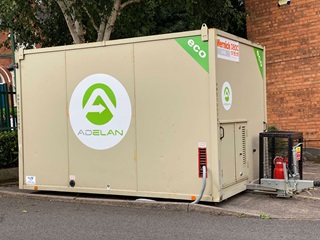Cleaner fuel cell technology for off-grid power generation

One way to do this is by using hydrogen fuel cells. Scalable from small portable units, right up to grid-connected power stations, fuel cells provide one of the cleanest possible technologies for dependable and reliable electricity generation. However, as the hydrogen economy is still some way off, a ‘stepping stone’ which can bypass many of the key obstacles facing hydrogen is needed to help pave the way to the clean hydrogen economy of the future.
Founded in 1996, Adelan pioneered microtubular solid oxide fuel cell (mSOFC) technology which is making the above possible. By taking advantage of the novel internal structure of microtubular Solid Oxide Fuel Cells (SOFC), Adelan has found a way to utilise hydrogen-rich fuels like LPG and BioLPG to provide fuel cells for a range of applications. For example, they can be used in generators to produce an almost silent source of electricity that emits water and only limited CO2. This is an advantage for Clean Air Zones and meets the considerate construction agenda most construction firms seek to follow.
As a business committed to supplying 100% renewable energy by 2040, working with an innovative company such as Adelan forms a key part of our own journey to fulfilling our sustainability pledge. Moving this forward in our first trial project, we have provided Adelan with the cylinders for their demonstration unit at Birmingham, all of which were supplied as 100% BioLPG, independently certified through the Green Gas scheme. We are also preparing to support them as the project progresses via further trials with their customers, and are currently planning the most effective and efficient ways to deliver cylinders where they are needed.
It’s just one of the many ways we are helping different industries to make the transition to use more sustainable fuels, and driving the change required for a better future. To find out more about Adelan fuel cells and BioLPG, go to www.adelan.co.uk